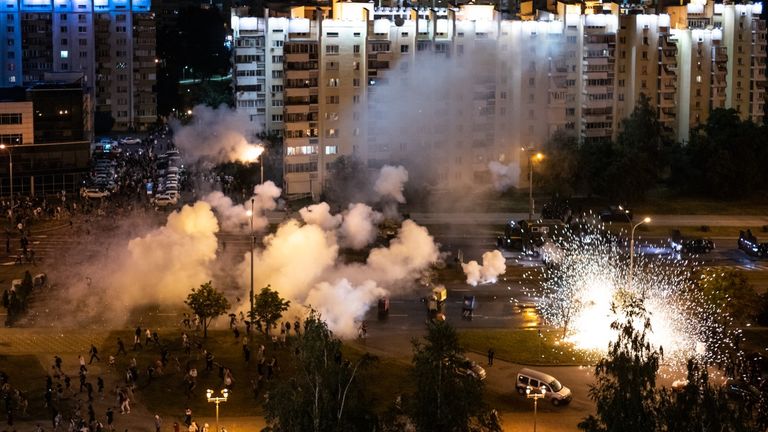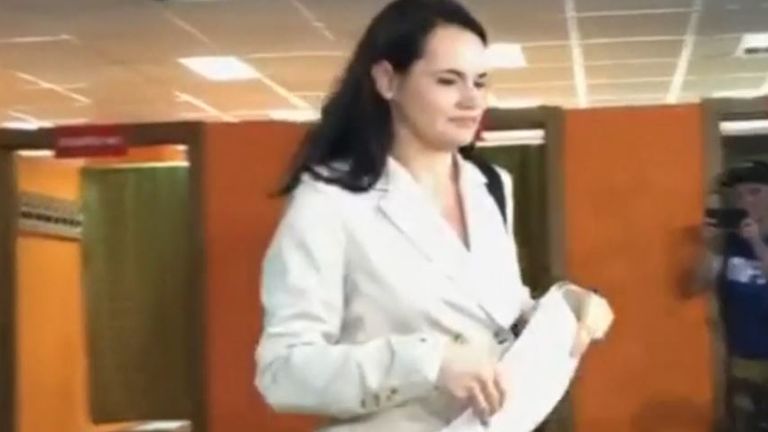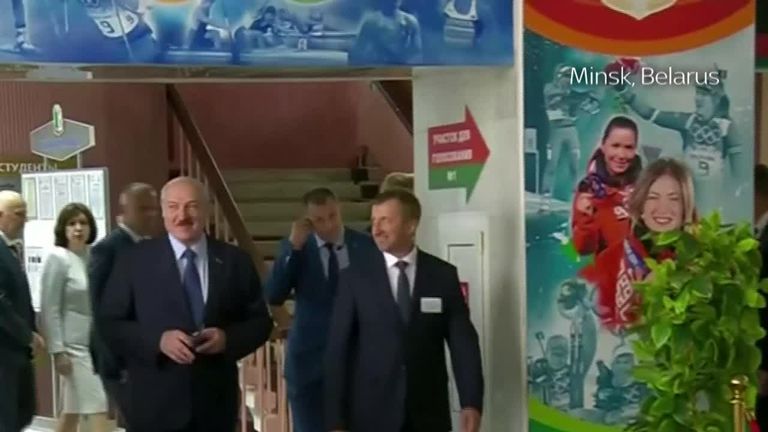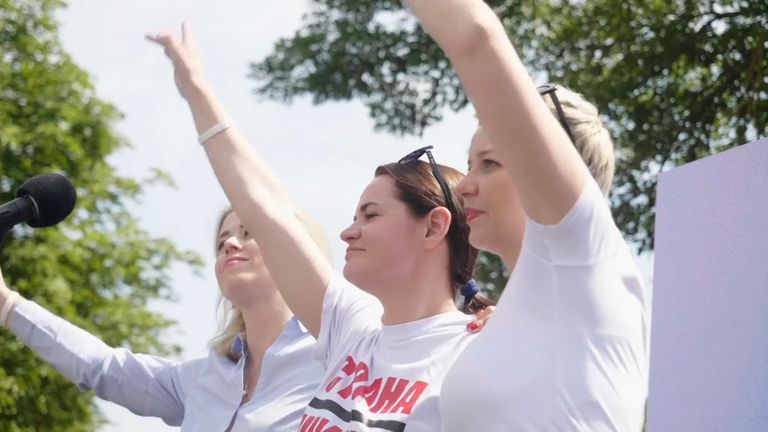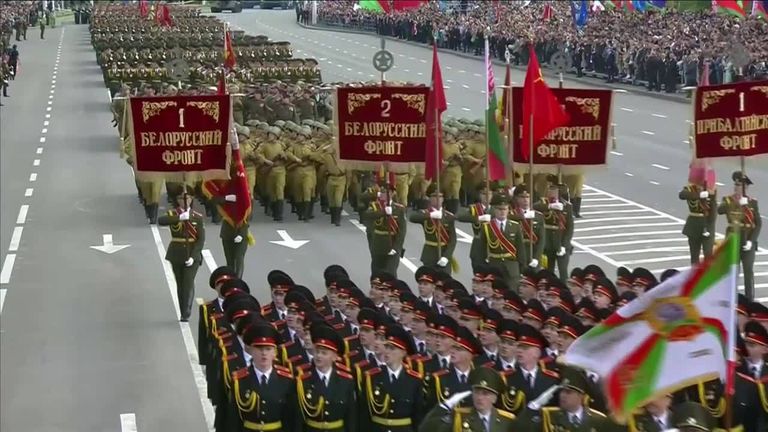Police and protesters have clashed in the capital of Belarus and other cities after a contested presidential election.
Authoritarian Alexander Lukashenko, who is seeking a sixth term in office, was on track to win the election on Sunday night, with the country’s elections commission saying partial results showed him with more than 90% in some districts.
However, there is widespread suspicion that the election was not fair, with two opposition candidates denied places on the ballot before one of them was jailed and the other fled to Russia.
The main opposition candidate, Sviatlana Tsikhanouskaya, was targeted during the weekend: eight members of her staff were arrested and one of her aides fled the country.
Ms Tsikhanouskaya, a former teacher and wife of a jailed opposition blogger, had received large displays of support leading up to the election – unusual in a country where dissent is rarely tolerated.
But opposition supporters said they expected election officials would manipulate the election results in favour of Mr Lukashenko, 65.
After the vote on Sunday, thousands of protesters gathered in Minsk where police used truncheons to beat them and flash-bang grenades in an effort to get them to leave. Protesters tried to build barricades with rubbish bins.
There were also demonstrations in the cities of Brest, Gomel, Grodno and Vitebsk and police fired tear gas at people in Brest, according to news reports.
It is unclear how many people were injured or arrested but the Association Press quoted Ales Bilyatsky of the Viasna human rights group as saying there had been several hundred arrests.
Among them were three journalists from an independent Russian TV station and an AP journalist was beaten by police and taken to hospital.
Meanwhile, Ms Tsikhanouskaya said she did not believe the polls, saying: “I will believe with my own eyes. The majority was for us,”
After voting earlier in the day, she had said: “I hope that everything will be peaceful and that the police will not use force.”
As he voted, Mr Lukashenko had said: “Do you want to try to overthrow the government, break something, wound, offend, and expect me or someone to kneel in front of you and kiss them and the sand onto which you wandered? This will not happen.”
Mr Lukashenko has been in power since 1994 but many have become frustrated with his authoritarian rule, the struggling economy and his failure to recognise the seriousness of the coronavirus pandemic.
He has dismissed the illness as “psychosis” and has not brought in any restrictions to limit its spread, despite more than 68,500 confirmed cases and 580 deaths – numbers that critics say are manipulated.
Ms Tsikhanouskaya tapped into this frustration as she campaigned across the former Soviet country of 9.5 million people.
The Organisation for Security and Cooperation in Europe was not invited to send observers to the election.

